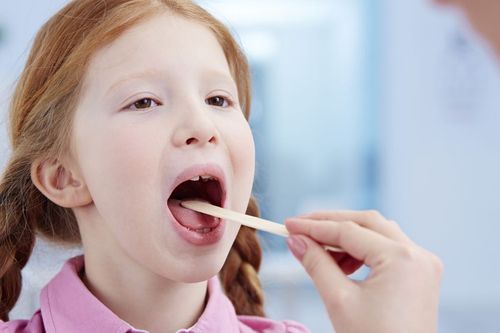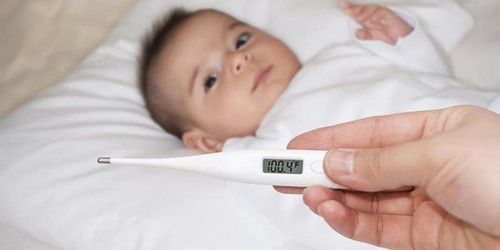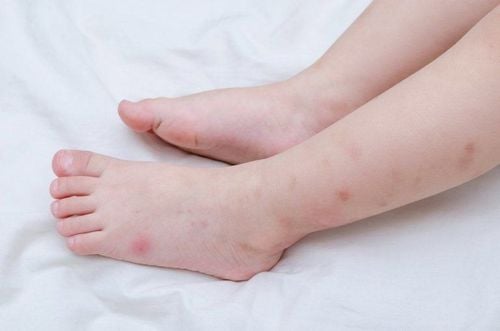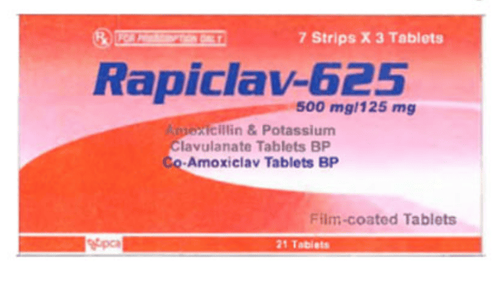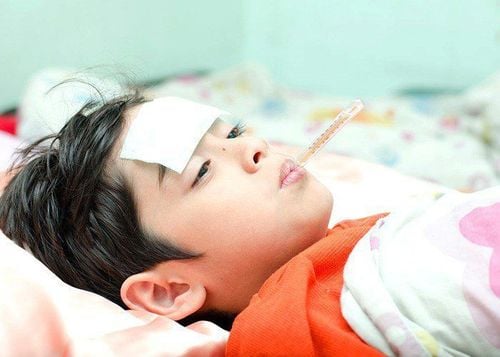Tonsillitis occurs when the number of bacteria and viruses invading a child's body exceeds the permissible level. When the tonsils become swollen and repeatedly inflamed, the body's ability to fight off bacteria and viruses weakens. These tonsil infections trigger episodes of inflammation in the throat area, also known as pharyngotonsillitis.
Fever occurs when the tonsils become swollen and inflamed, and the lymph nodes become enlarged, prompting the body to react. Children may experience mild or high fever, or in some cases, no fever at all. The fever is classified into two types based on the severity of the illness:
- Acute tonsillitis fever: Children suddenly develop a fever ranging from 38–39°C, possibly reaching 39.5°C. This is often accompanied by chills, headaches, fatigue, loss of appetite or refusal to feed, dry mouth, dry skin, reduced urination, dark-colored urine, constipation, a sore throat, ear pain, difficulty swallowing, nasal congestion, runny nose, phlegmy cough, wheezing, and snoring.
- Chronic tonsillitis fever: In this case, the child may have only a mild fever or none at all, without chills, but often experiences low-grade fevers, especially in the afternoon. The child may appear weak, with pale skin, cold to the touch, and difficulty swallowing. They might also have a persistent cough, especially in the morning, a sore throat, wheezing, and snoring, and may even have difficulty breathing during sleep. Bad breath and an unpleasant odor from the mouth are also common.
Children with tonsillitis can have a fever lasting anywhere from 1 to 4 days. If treated promptly, 70% of children will stop having a fever within 3–4 days. However, if left untreated, the fever may persist, and recurrent episodes of fever can lead to chronic tonsillitis.
If a child has a fever due to tonsillitis, parents can try several methods to lower the fever and ease associated symptoms:
- Cold compresses: Use a clean towel soaked in water and wrung out to gently wipe the child’s body. Additionally, apply cold towels to the forehead, neck, and armpits to help bring down the fever.
- Fever-reducing medications: Medications like paracetamol can help reduce the fever quickly and are generally safe for children with minimal side effects, but should be used according to a doctor's instructions, either orally or as suppositories.
- Loose, breathable clothing: Dress the child in clothes made from moisture-wicking, lightweight fabrics to help the body cool down and keep them comfortable while resting.
- Hydration: Ensure the child drinks plenty of fluids such as water, electrolyte solutions, or diluted fruit juices to stay hydrated.
- Nutritious foods: Provide the child with foods high in protein, fiber, and vitamin C to help support their immune system.
- Mouth and nasal hygiene: Encourage the child to gargle and rinse their nose frequently to remove irritants and bacteria.
- Avoid exposure to cold: Limit the child’s exposure to cold temperatures or anything that may aggravate the fever.
Fever caused by tonsillitis is a common occurrence in children, as the toxins from the infection stimulate the body to produce fever-causing substances. Although fever symptoms can vary, they can lead to complications such as seizures, dehydration, and even coma if not properly managed. It is essential for parents to understand how to properly manage fever to prevent any serious health issues.
To arrange an appointment, please call HOTLINE or make your reservation directly HERE. You may also download the MyVinmec app to schedule appointments faster and manage your reservations more conveniently.




